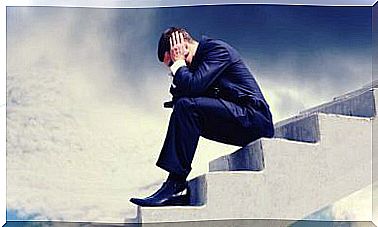7 Keys To Developing Self-efficacy And Feeling Competent

Only a few weeks ago we lost Albert Bandura (1925-2021), one of the most relevant social psychologists in history. With him we learned how to develop self-efficacy. He taught us that, in an increasingly variable world, believing in ourselves is the only way to achieve stability and also the ability to achieve the goals we set for ourselves.
It is not an easy task. Self-efficacy is one of the pillars that builds the human personality, since thanks to it, we have the opportunity to be who we really want to be. The legacy that he left us throughout his extensive work has allowed us to understand everything from the importance of learning to how the beliefs that we decide to reinforce at any given time mediate our well-being.
Trusting ourselves, knowing that we are capable of achieving certain things and working in tune with our desires, values and abilities is what allows us to go far in life. Therefore, let’s discover a series of simple strategies to achieve it.

How to develop self-efficacy in 7 keys
Self-efficacy is defined as the confidence we have in our ability to implement certain actions and thus achieve a goal (Bandura, 1977, 1986, 1997). Importantly, it is not just a matter of “believing that we can.” It is not simple “self-confidence”.
This dimension is based on the assimilation and application of a series of competences; an awareness of success in a process that will support our hope of being effective. This, as we can imagine, is decisive in childhood and adolescence. Studies, such as those carried out at the Jaume I University, Castellón, remind us that average self-efficacy in academic achievement.
We know that when a student has confidence in his skill and relies on it to believe that he will achieve good results, he is more likely to obtain them. Bandura himself indicated that it is a priority to develop self-efficacy during childhood. This will reverse our development and ability to achieve in adulthood. However, we are always in time to apply appropriate changes.
Let us therefore see a series of keys to put it into practice.
1. If you want to be competent in an area, learn and work in it
No one can be effective as a doctor if they have not studied medicine. It is obvious. Therefore, if you want to feel truly competent in any discipline, however insignificant, you must practice and learn. This means, first, that you must recognize what you do not know and then be open to change, to establish new perspectives and domains.
2. Developing self-efficacy is a constantly evolving process within us.
Bandura said that every puzzle is completed piece by piece and in a thoughtful way. The same thing happens with self-efficacy. It is a process of evolution in which the person must see how they achieve small advances and daily victories. There will be setbacks, of course, but that is what learning consists of, integrating errors to solve them and thus being able to improve our sense of competence.
3. Remember the experiences of mastery and achievement
A key to developing self-efficacy is to remember all those times when we have been successful in taking certain actions. The hope that we will be able to rest in looking at the past to connect with those times that we were successful. This is important because we see it so often in children.
They often doubt themselves when performing certain tasks. However, as they accumulate experiences of mastery and success, they trust themselves much more until they are fully autonomous.
4. Regulate your emotions and control your thoughts
If you want to fully and effectively develop self-efficacy, you must manage your emotions. Dimensions like fear or insecurity darken your expectations. If you fear failure and obsess over error, chances are you will fail. Also, if your mind is not with you and only negative thoughts assail you, your competition will collapse.
Therefore, it is essential that you learn to regulate everything that happens in your mind. Being self-effective is aligning skills with adequate emotional harmony.
5. Social modeling: look at those who are successful
What do successful people in your industry do? If you dream of mastering a discipline, it is always appropriate to look at those who have achieved excellence. Social modeling, that is, learning by observing and imitating experts, is also suitable.
6. To develop self-efficacy, accept challenges
People who have managed to develop self-efficacy and who have reached the highest levels, have taken on great challenges. Intentionally and courageously tackling difficult tasks is a way of challenging yourself and above all, of showing yourself that you can achieve more than you think.

7. Accept feedback: both positive and negative
Nobody gets very far if they cannot accept advice, if they are not good at leaving room for external feedback. None of us are born experts, the expert is born with the humility of someone who assumes that he does not know everything. This implies, for example, accepting our mistakes and letting ourselves be guided by someone who knows more than we do.
On the other hand, if it is decisive to make mistakes, it is also important to accept positive reinforcement. A compliment is another boost to strengthen self-efficacy and know that we are on the right track. No more no less. Therefore, let us work every day in this dimension to improve our lives, to be able to go far, wherever our expectations (and skills) take us.









